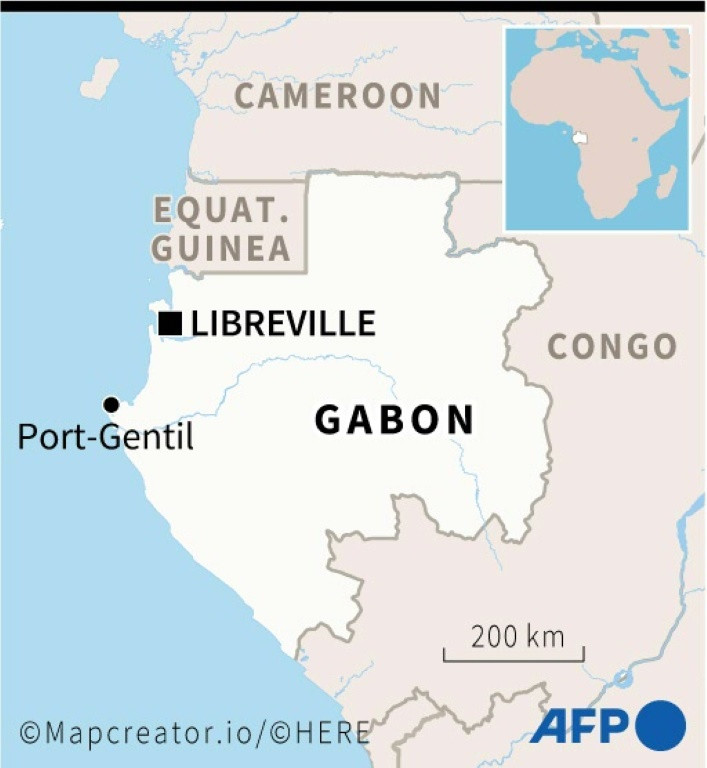Gabon's Bongo Seeks Third Term In Nationwide Poll

Voters in Gabon headed to the polls on Saturday for a triple election in which President Ali Bongo Ondimba, scion of a family that has ruled for 55 years, is seeking victory over a belatedly-united opposition.
Bongo and his main rival Albert Ondo Ossa lead a race of 14 candidates vying for the top job in the small oil-rich central African state.
Even before voting stations opened at 7:00 am (0600 GMT), a handful of people were waiting to cast their ballots at five schools in the centre of Libreville -- though most of the streets, decked out in the colours of Bongo's governing party, were still empty, an AFP journalist saw.
The 64-year-old incumbent took office in 2009, succeeding his father Omar, who died after more than 41 years in power.
But shortly ahead of the elections, a storm erupted over a purported conversation between Ondo Ossa and a fellow opposition figure.
The conversation -- recorded without the pair's knowledge and disseminated on social media -- refers to various strategies "to create a power struggle" and support from other countries.
Bongo has accused the pair of treason, saying the remarks reflect a plot to take over with the help of "foreign powers".
At an eve-of-election rally attended by tens of thousands of supporters in Libreville, Bongo charged that the two sought to "destroy this country".
"We won't let them to do it," he said.
Onda Ossa, a 69-year-old economics professor who served as a minister under Bongo from 2006 to 2009, was chosen by the main opposition grouping, Alternance 2023, as its joint candidate just eight days before the election.
Alternance 2023 this week issued a statement strongly denying the "veracity and authenticity of this conversation" and accused the government of "shameful manipulation".
For years, Bongo, who once had ambitions to be a funk singer before being groomed for politics, struggled in the shadow of his charismatic father.
In 2016, he was narrowly re-elected with just 5,500 more votes than his rival, who claimed the election had been fixed.
The announcement of the results sparked violence in the capital Libreville that left five dead, according to the government. The opposition says 30 people were shot dead by the security forces.
In October 2018, Bongo suffered a stroke that sidelined him for 10 months.
His prolonged absence stoked claims he was unfit to rule effectively and fuelled a minor attempted coup.
He returned to work after his convalescence bent on showing himself to be a man of rigour, keen to root out "traitors" and "profiteers" in his inner circle.
Visitors and diplomats say that Bongo today is mentally acute but has mobility problems in his right arm and leg.
In recent months, he has been busy with foreign trips and a nationwide tour to defend his record and pitch himself as an agent of change.
As well as electing a president, Gabon's 850,000 voters will be choosing candidates for the legislature and local councils.
In the days leading up to the ballots, the main opposition parties have cried foul over a last-minute change to voting rules in the legislative race which they say violates the separation of powers.
The new move stipulates that any vote for a local deputy will automatically be a vote for that deputy's presidential candidate.
Critics said the move will lead to an "unfair vote", favouring the ruling Gabonese Democratic Party (PDG) since Ondo Ossa is not backed by any single party.
Ondo Ossa has told AFP that if elected: "I will dissolve parliament and convene new elections" for the body.
The PDG has an overwhelming majority in the outgoing National Assembly.
The protest over the voting rules followed another controversy five months ago.
A change was introduced that scrapped the need for a runoff if the first round fails to produce a winner with more than 50 percent of the vote.

© Copyright AFP 2024. All rights reserved.





















